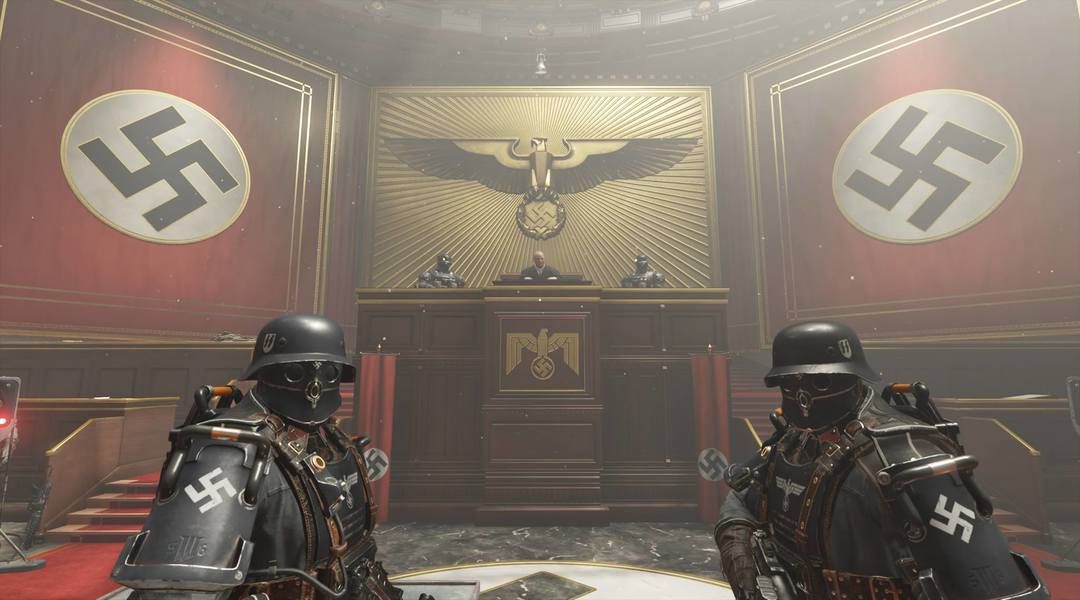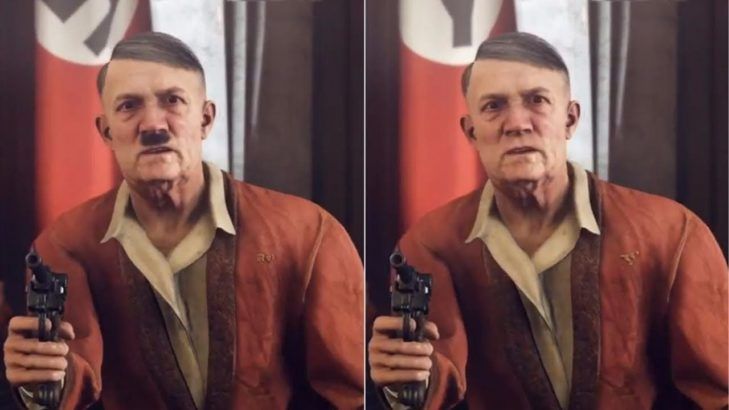Germany will no longer uphold its total ban of Nazi symbols in video games, after a change to rating body USK's regulations. From now on, such symbols previously deemed "unconstitutional" in Germany will be considered for their artistic justification, similar to how World War II movies are allowed to be shown in the country despite their frequent inclusion of swastikas.
Before the ban, any games which displayed banned symbols were denied an age rating, preventing them from being sold in Germany. This led to games like Wolfenstein 2, which revolves around killing Nazis, being heavily censored and edited in Germany. As it so happens, swastikas were replaced with other symbols, and Hitler's mustache was even removed.
Elisabeth Secker, USK's managing director, detailed the new approach, saying, "Through the change in the interpretation of the law, games that critically look at current affairs can for the first time be given a USK age rating." Crucially, she stressed that video games, like films, will now be considered as art.
While the new ruling from the USK isn't a complete lift of the ban (extremist symbols are still prohibited, for example), games will be examined case-by-case to determine whether there is some justification for their use of Nazi imagery. This will go down well with the gaming community, as Germany's strict stance on the topic has drawn plenty of criticism in the past.
It also means one less thing for game developers to worry about, since alternative versions of games and trailers will no longer be a requirement. An example of Germany's past restrictions impacting big games is Call of Duty: WW2, as its trailers had all swastikas edited out so that Activision and Sledgehammer Games wouldn't encounter any problems when marketing the first-person shooter in Germany.
It will be interesting to see how these changes will shape video game consumption in Germany, and whether the end of the total ban will also pave the way for less censorship of blood, bodies, and violence that games in the country sometimes see. With the progress made in Germany, and the news that We Happy Few is no longer banned in Australia, the future of video games as a unrestricted art form is looking brighter by the day.
Source: The Telegraph


